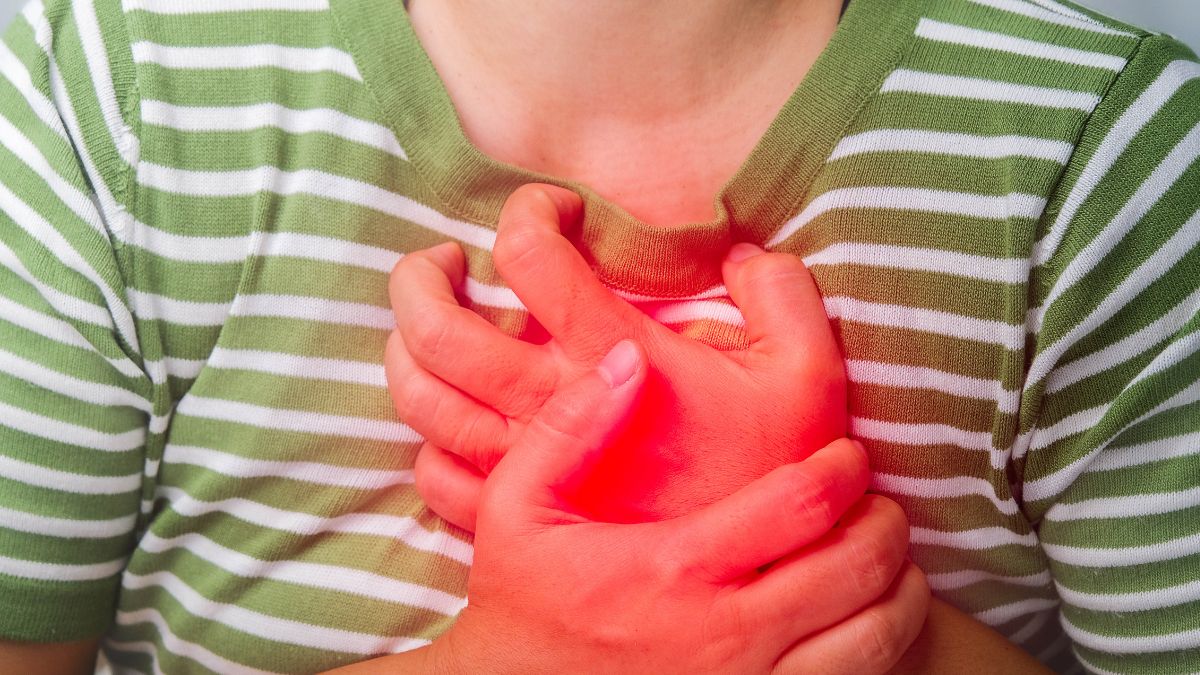- By Priyanka Munshi
- Tue, 23 Apr 2024 06:19 PM (IST)
- Source:JND
Early detection is crucial for effectively managing and treating major health disorders, including cancer, diabetes, and cardiovascular problems, especially in young people. Routine screenings and check-ups can assist in identifying potential health risks before they worsen, thereby enhancing outcomes and enabling prompt intervention.
Mammograms and colonoscopies are examples of routine cancer screenings that can detect abnormalities early, when treatment is most effective. Similarly, regular blood pressure checks and blood sugar monitoring can aid in the early diagnosis of cardiovascular disease and diabetes.

Regular blood pressure checks and blood sugar monitoring aid in the early diagnosis of cardiovascular disease and diabetes.(Image Credit:Canva)
In a conversation with Dr. Shailesh Desai, a consultant pathologist at Metropolis Healthcare Limited, we discussed the importance of early detection in managing various health conditions like cancer, diabetes, and cardiovascular diseases, particularly in young individuals.
Mortality and morbidity among young adults in the Indian population are primarily attributed to underlying cancer, diabetes, and heart conditions.
Also Read: 5 Types Of Breakfast Sandwiches For Quick Weight Loss
According to Dr. Shailesh, the incidence of cancer cases in India is estimated to increase by 12.8 percent by 2025, as per ICMR data. The most common cancers in adolescents and young adults (ages 15–39 years) include breast cancer, cervical cancer, thyroid cancer, and testicular cancer. Early diagnosis through available testing and immediate treatment remain crucial in cancer management. The WHO recommends regular cervical cancer screening starting at age 30 for females in the general population, utilizing HPV DNA-based tests and cytology. Screen-and-treat strategies and recommendations are also available for women living with HIV. The incidence of breast cancer among females under 40 years of age is 14.8% in India, making mammography screening preferable for early diagnosis in such women.
The American Diabetes Association (ADA) recommends plasma glucose tests, or HbA1c testing, for screening all adults starting at age 45, regardless of risk factors. Risk-based screening for type 2 diabetes or prediabetes in asymptomatic children and adolescents is also recommended, particularly for those who are obese or overweight, along with risk factors such as hypertension, family history, past gestational diabetes, and PCOS (polycystic ovary syndrome) in young females. Testing should commence at puberty and, if normal, continue every three years thereafter. Pre-diabetes patients should undergo yearly testing, while individuals with no symptoms and no risk factors should begin testing at age 45 for sugar levels.

The WHO recommends regular cervical cancer screening starting at age 30 for females in the general population, utilizing HPV DNA-based tests and cytology.(Image Credit:Canva)
Additionally, heart issues causing early deaths in young adults have become common nowadays. The most common cause is atherosclerosis, where the heart's blood vessels become blocked. Other causes include genetic heart diseases and physical trauma. It's crucial to educate young adults about heart attack symptoms and emphasize the importance of seeking prompt medical help. The American Heart Association (AHA) recommends screening tests such as lipid profiles and high-sensitivity C-reactive protein levels for coronary artery disease (CAD) starting at age 20, with additional testing for those with a family history of certain diseases.
Negative lifestyle changes often play a significant role in the development of such conditions. Positive lifestyle changes include maintaining a balanced diet with limited saturated fat and salt intake, staying hydrated, engaging in regular physical activity, weight management, avoiding crash diets, quitting smoking, limiting alcohol intake, and ensuring adequate sleep for 7-9 hours daily.
Also Read: Are Pregnant Women At Higher Risk Of Malaria Infection? Expert Weighs In
Finally, Dr. Shailesh advises practicing stress-reducing techniques like meditation, deep breathing, or yoga, as chronic stress can impact overall health. It's essential to consult with healthcare providers about screening tests.

